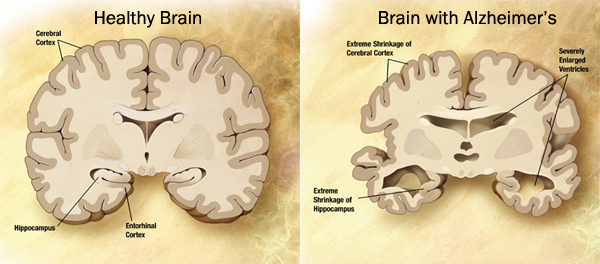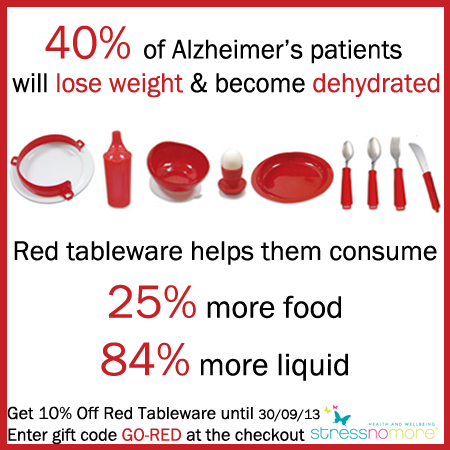30 August 2013
230 view(s)
World Alzheimers Month - We're Supporting You
800,000 people in the UK suffer from Alzheimers disease, and most of us will be touched in some way by the condition having known a friend or family member who suffers with the condition. This September we’re getting behind World Alzheimers Month which aims to raise awareness of this serious and debilitating condition.

What is Alzheimers?
Alzheimers is a progressive condition in which protein ‘plaques’ and ‘tangles’ grow on the brain. These plaques cause nerve cells to die and also reduce levels of the important chemicals which enable transmission of messages through the brain. This prevents the brain from operating properly, resulting in reduced mental and bodily function.
What are the symptoms of Alzheimers?
- Short term memory loss
- Inability to recall long term memories
- Inability to recognise familiar faces or names
- Personality changes and mood swings
- Anxiety, fear, suspicion, confusion and depression
- Difficulty speaking, writing and expressing thoughts
- Reduced ability to think, plan and organise
What can I do if a loved one is diagnosed with Alzheimers?
It is heartbreaking seeing a loved one battle with Alzheimers, not only because it feels as though they are not the same person, but also because it can be difficult knowing how to behave around them or the best ways to care for them and make them feel comfortable and content. The Alzheimers Association[1] gives some essential tips for caring for a loved one as the condition progresses.Early-Stage Alzheimers
A person can live with early-stage Alzheimers for a number of years before it progresses to a more serious degree. They will experience mild changes to their memory and ability to think and may need you to help:- Plan and organize their activities and keep meetings or appointments
- Recall names, familiar people and places
- Manage money and medications
- Encourage them to stay involved with activities and friends
Middle-Stage Alzheimers
The ability to do routine tasks and properly express thoughts will be much harder. A person may jumble words or sentences, become angry and frustrated and occasionally act out of character. You should:-
Remain calm if they become agitated or repeat the same questions
- Adapt their daily routine to suit their needs but maintain structure
- Be understanding of their emotions and reassure them regularly
- If the person can still read leave them simple written reminders
- Ensure you have support from friends or family when you become stressed or upset
Late-Stage Alzheimers
During this stage the level of care a person needs will be much higher since they will often lose the ability to walk steadily, clean themselves, eat properly and communicate with words. Clinical studies have found that late stage Alzheimers patients experience most things with their senses – touch, sound, sight, taste and smell – rather than by recalling memories, thinking or having conversations. In order to connect with them you could:- Play their favourite music or read from their favourite book
- Look at old photos together
- Use brightly coloured objects during daily routines; red tableware at mealtimes is clinically proven to encourage Alzheimers sufferers to eat more food.[2]
- Use their favourite scents, perhaps in soap or lotions
- Brush their hair or massage their hands
- Don’t tell them they’re wrong; they may not understand why and could feel embarrassed.
- Don’t argue with them; you will make them angry or upset. Change the subject instead.
- Don’t ask if they remember something; they probably won’t and this may embarrass them. Say “I remember when…” instead; this may help to trigger their memory
- Don’t remind them of a loved one’s death; they may not believe you and may become upset. If they ask you if someone is dead, be honest then change the subject.
- Don’t bring up topics that might upset them; if you know you will disagree on something and they could become angry, don’t mention it.
We’re also offering 10% off all Red Tableware throughout September. Red Tableware is clinically proven to increase food intake by 25% in people with Alzheimers as it helps the brain to focus on food. Enter giftcode GO-RED at the checkout for your reduced price.

